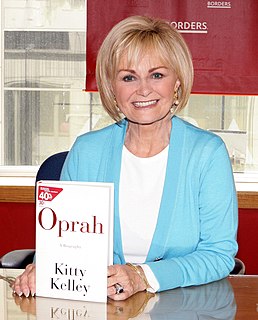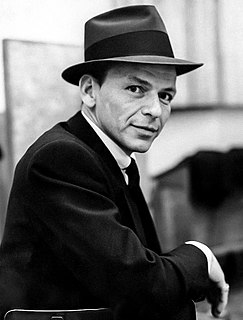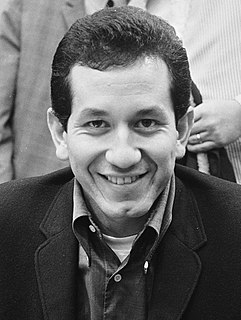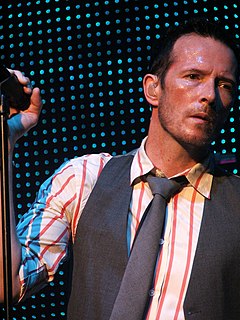A Quote by Kitty Kelley
My biography of Frank Sinatra is not paean to his music but rather an illumination of the man behind the music, who once described himself as 'an 18-karat manic-depressive who lived a life of violent emotional contradictions with an over-acute capacity for sadness as well as happiness.'
Related Quotes
There is a man up in Philadelphia, I've known him for 50 years now, his name is Sid Mark. He does a radio program featuring Frank Sinatra music exclusively - one show for decades, "Friday with Frank," "Saturday with Sinatra," "Sunday with Sinatra," for decades. This is something that is really quite important.
I want people to feel what it was like in the '40s. That's when popular music in the United States was so beautiful. Frank Sinatra, the Pied Pipers, Duke Ellington, Fletcher Henderson, Tommy Dorsey, Billie Holiday. That's when popular music had deeper values, to me. This was music that was selling millions of records.
I knew I was a manic depressive when I was 13 or 14, and I loved it. I always told people what I had, and I was always cresting on a manic wave. I used it, willingly and happily, and it was an extraordinary experience. When I got hit with the depressive side - Boom! - yes, it was horrible and unendurable, but that's part of the story.




























